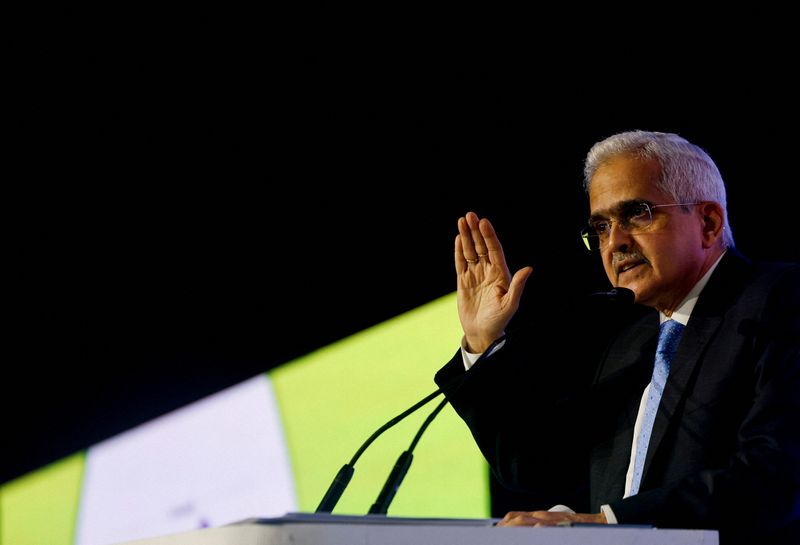MUMBAI (Reuters) -Some Indian non-banking finance companies (NBFCs) are aggressively pursuing growth and chasing excessive returns on equity, which could pose financial stability risks, the central bank governor said on Wednesday.
The Reserve Bank of India (RBI) is "closely monitoring" this and "will not hesitate to take appropriate action, if necessary," Governor Shaktikanta Das said.
He said "self-correction" would be the desired objective.
Over the past year, the RBI has warned the financial sector against "all forms of exuberance", tightened rules for credit card and personal loans, and made it more expensive for non-bank lenders to borrow from banks. It also has penalised entities and imposed business restrictions on companies that breached rules.
Overall loans given out by banks rose 13.6% from a year earlier in August, compared with a 19.7% growth in August 2023, data from the RBI showed.
Loan growth in August this year was at 14.9%, excluding the impact of private lender HDFC Bank merging with its parent Housing Development Finance Corp.
"An imprudent 'growth-at-any-cost' approach would be counter productive for their (NBFCs') own health," Das said.
It is also concerning when certain NBFCs charge "usurious" interest rates and have "unreasonably high" processing fees and frivolous penalties, he said.
Such practices appear to be a "push effect" as business targets drive retail loan growth rather than actual demand, the governor warned.
"The consequent high-cost and high indebtedness could pose financial stability risks if not addressed by these NBFCs," he said, without naming the NBFCs.
NBFCs may review their prevailing compensation practices and incentive structures, some of which appear to be "purely target driven", Das said.
In particular, Das said microfinance institutions (MFIs) and housing finance companies (HFCs) are chasing excessive returns on their equity, sometimes under pressure from investors.

While bad loans in the banking sector remain low, analysts have warned about some increase in stress for unsecured loans.
Certain non-bank lenders are seeing elevated slippages and high credit costs, and the central bank remains watchful, deputy governor Swaminathan J said at a post-policy press conference in Mumbai.